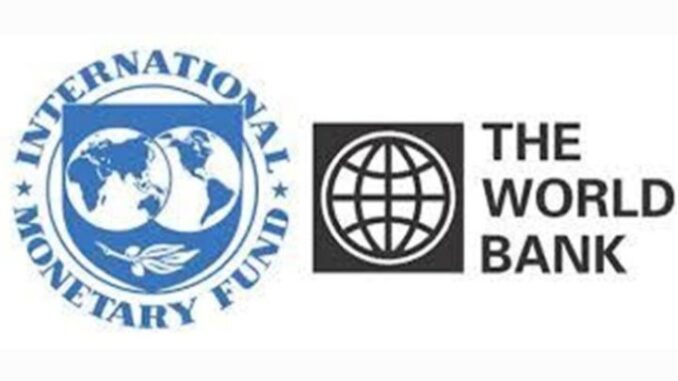
Preparations for the first review of Egypt’s economic reform program with the International Monetary Fund (IMF) have begun and dates for the review mission will be announced when agreed with the authorities, reported Reuters, citing IMF spokesperson.
The IMF approved in December a $3 billion Extended Fund Facility loan for Egypt, which has been under acute financial pressure since long-standing problems were exposed by the economic fallout from the war in Ukraine.
Disbursements under the 46-month program are subject to eight reviews, the first of which was dated March 15, 2023 in an IMF staff report published in December.
Among the key commitments that Egypt made to secure the loan were a permanent shift to a flexible exchange rate regime and wide-ranging structural reforms to reduce the state’s footprint in the economy.
Egypt’s currency has lost nearly 50% of its value over the past year following three sharp devaluations.
In the past two weeks, it has traded in a narrow band between 30.75 and 30.95 pounds to the dollar, according to Eikon data, although the pound’s value on the black market has slipped.
Analysts say the pound has come under renewed pressure partly due to delays in expected sales of state assets.
World Bank approves $7bn to Egypt
On Wednesday, the World Bank said it had approved a new $7 billion partnership agreement with Egypt for 2023-2027 with a focus on boosting private sector jobs, provision of better health and education services, and adaptation to climate change, Reuters reports.
The Country Partnership Agreement (CPF) will entail $1 billion per year from the International Bank for Reconstruction and Development (IBRD) and about $2 billion over five years from the International Finance Corporation (IFC), a statement from the World Bank said.
Among the goals of the program is to help create a level playing field for the private sector and to encourage investment and improve resilience to shocks through better macroeconomic management, the statement added.
Egypt’s economy has come under severe pressure over the past year, after the fallout from Russia’s invasion of Ukraine exposed underlying problems.
The government has announced ambitious privatisation plans, but sales of state assets have been repeatedly delayed.
Also, on Wednesday, the International Finance Corporation (IFC), part of the World Bank Group, announced that it had partnered with the European Bank for Reconstruction and Development and Egypt’s Sovereign Fund to develop desalination plants in Egypt through a public-private partnership model.
The scheme is part of Egypt’s plan to increase desalinated water supply by 8.8 million cubic metres of water daily by 2050, with the first plants to be located in the north coast region of Marsa Matrouh, the IFC said.
Egypt depends almost entirely on the River Nile for fresh water supplies, and is considered at high risk from the impacts of climate change.



